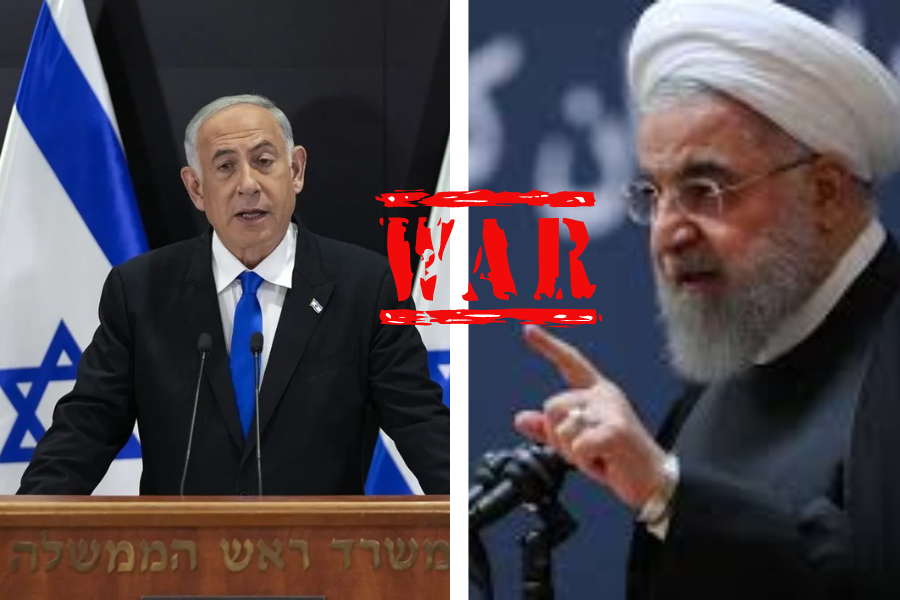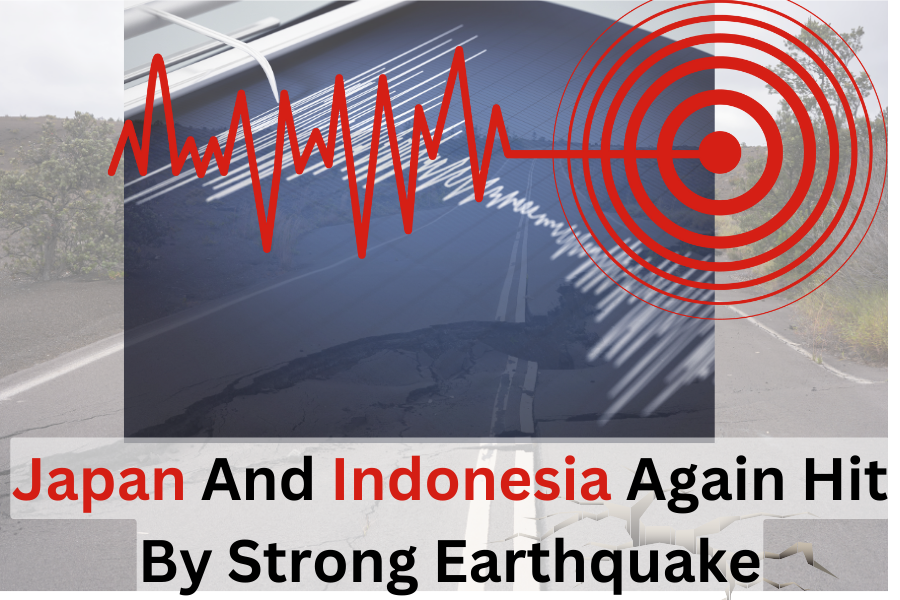Israel and Iran War: Israel Heightens Preparedness Amid Rising War Tensions
Posted on : April 6, 2024 By Santo

Table of Contents
Tensions between Israel and Iran have surged following a reported airstrike in the Syrian capital targeting an Iranian diplomatic compound. The strike resulted in the death of a prominent Iranian Quds Force commander, General Mohammad Reza Zahedi. While Israel has not officially claimed responsibility, Prime Minister Benjamin Netanyahu has pledged to take defensive and offensive actions against Iran and its proxies.
As a result of the escalating tensions Between Israel and Iran, Israel has been heightening its preparedness and taking steps to ensure the safety and security of its citizens.
The Israeli Defense Forces (IDF) have been conducting military exercises and drills to enhance their readiness in the event of a conflict. These exercises involve various branches of the IDF, including the air force, navy, and ground forces, and are aimed at testing their capabilities and coordination.
In addition to military exercises, Israel has been bolstering its missile defense systems to protect against potential threats from Iran. The Iron Dome, a mobile air defense system designed to intercept and destroy short-range rockets and artillery shells, has been deployed in strategic locations throughout the country. This system has proven to be highly effective in intercepting rockets fired from the Gaza Strip and Lebanon in the past.
Furthermore, Israel has been working closely with its allies, particularly the United States, to coordinate intelligence and share information regarding Iran’s activities in the region. This collaboration allows for a more comprehensive understanding of Iran’s capabilities and intentions and enables Israel to better anticipate and respond to any potential threats.
Internally, the Israeli government has been implementing measures to ensure the safety of its citizens. This includes increasing security measures at airports, train stations, and other public areas, as well as enhancing intelligence gathering and surveillance efforts. The goal is to detect and prevent any potential attacks before they can be carried out.
Despite the heightened tensions, Israel remains committed to diplomatic efforts and has been engaging in discussions with other regional powers to de-escalate the situation. However, it is clear that Israel will not hesitate to take decisive action to protect its national security and the safety of its citizens if necessary.
As tensions continue to rise between Iran and the United States, the world anxiously awaits Iran’s response to the recent airstrike. President Ebrahim Raisi’s vow to not let the attack go unanswered has sent shockwaves throughout the international community, leaving many wondering what form this retaliation will take.
Given Iran’s history of unconventional warfare and support for proxy groups in the region, there is a wide range of possibilities for how they may choose to respond. One potential avenue for retaliation could be through their network of regional allies, such as Hezbollah in Lebanon or the Houthis in Yemen. These groups have been known to carry out attacks on behalf of Iran in the past, and it is not out of the realm of possibility that they could be instructed to launch strikes against American interests in the region.
Another potential response from Iran could come in the form of cyber attacks. Iran has shown a capability and willingness to engage in cyber warfare in the past, targeting both government and private sector entities. With their sophisticated cyber capabilities, they could potentially disrupt critical infrastructure or launch a large-scale cyber attack on American networks, causing significant damage and disruption.
Furthermore, Iran could also choose to escalate the conflict by directly targeting US military installations in the region. With a significant military presence in countries such as Iraq, Bahrain, and Qatar, the US has numerous vulnerable targets that Iran could strike. This could include missile attacks or even direct assaults on American bases, potentially leading to a wider conflict in the region.
Regardless of the form it takes, Iran’s response to the recent airstrike is likely to have far-reaching implications. The situation in the Middle East is already highly volatile, and any escalation of tensions between Iran and the United States could have serious consequences for regional stability. The international community is closely watching the developments, hoping for a peaceful resolution to the crisis but preparing for the worst.
Read US Preparations on Iran Attack
Israeli Preparations for Potential Conflict between Israel and Iran
In response to the escalating threat, Israeli authorities have taken several precautionary measures to ensure the safety and security of its citizens:
GPS Jamming
Intensified efforts to disrupt GPS signals across the country aim to render guided missiles and drones unusable. While this measure is crucial for Israel’s defense strategy, it has inconvenienced residents, particularly in urban areas like Tel Aviv and Jerusalem. The disruption of GPS signals can affect navigation systems and location-based services, causing temporary disruptions in daily life.
Furthermore, the Israeli government has been working on developing alternative navigation systems that can function independently of GPS signals. These systems, such as the Israeli-developed NavSOP technology, utilize multiple sensors and signals to determine precise location information. By investing in these technologies, Israel is not only mitigating the inconvenience caused by GPS jamming but also enhancing its defense capabilities.
Military Deployment
The Israel Defense Forces (IDF) have deployed forces along all borders and bolstered air defense systems. Combat units have had their leaves suspended, indicating a readiness for potential conflict. This proactive approach demonstrates Israel’s commitment to protecting its borders and maintaining a strong defense posture.
In addition to the increased military presence, the IDF has been conducting joint exercises with allied nations, further enhancing its readiness and interoperability. These exercises serve as an opportunity to share knowledge, improve coordination, and strengthen regional alliances, all of which are essential in deterring potential adversaries and maintaining stability in the region.
Civil Defense Measures
In light of the escalating tensions, considerations are being made to open bomb shelters in Tel Aviv and other vulnerable areas. Municipalities have begun taking similar precautions by enhancing security measures and conducting drills to ensure that the civilian population is prepared for any potential threats. These measures are essential to safeguarding the lives of Israeli citizens in the event of an attack.
Moreover, the Israeli government has been investing in advanced early warning systems that can detect and alert the population about incoming missile threats. These systems, such as the Iron Dome, have proven to be highly effective in intercepting and neutralizing incoming projectiles, reducing the potential damage and casualties. By combining civil defense measures with advanced technology, Israel aims to provide its citizens with the highest level of protection.
Diplomatic Alert
Israeli embassies worldwide have been placed on high alert, with urgent evacuations of some consulates and the relocation of diplomatic representatives to safer locations. This heightened state of alert comes in response to warnings from intelligence agencies regarding potential Iranian threats against Israeli diplomatic missions. By taking these precautionary measures, Israel aims to protect its diplomatic personnel and maintain its presence abroad.
In addition to physical security measures, Israel has been actively engaging with its international partners to raise awareness about the potential threats and seek support in countering them. Through diplomatic channels, Israel is working to ensure that its concerns are heard and that the international community remains vigilant against any hostile actions.
Furthermore, the international community must actively engage in diplomatic efforts to facilitate dialogue between Israel and Iran. This includes encouraging both nations to participate in multilateral negotiations and providing a platform for open communication. In addition, regional powers such as Saudi Arabia, the United Arab Emirates, and Egypt can play a crucial role in mediating between the two countries and promoting peaceful coexistence.
It is important to acknowledge that the tensions between Israel and Iran are deeply rooted in historical, geopolitical, and religious factors. Both nations have legitimate security concerns and perceive each other as threats. However, it is crucial to move beyond this perception and find common ground to address their differences.
One possible avenue for de-escalation is through confidence-building measures. Israel and Iran could explore the possibility of establishing direct communication channels to exchange information and address misunderstandings. This could include regular meetings between diplomats or military officials to enhance transparency and reduce the risk of miscalculations.
Moreover, the international community should also play a role in addressing the underlying issues that contribute to the tensions between Israel and Iran. This includes addressing Iran’s nuclear program and its support for proxy groups in the region. By addressing these concerns, it may be possible to create an environment conducive to dialogue and trust-building.
In conclusion, the current tensions between Israel and Iran require a comprehensive and multifaceted approach. While Israel’s preparedness is understandable given the potential threats it faces, it is crucial for all parties involved to prioritize diplomacy and peaceful resolutions. The international community must actively engage in facilitating dialogue, while regional powers can play a mediating role. By addressing the underlying issues and promoting confidence-building measures, there is hope for de-escalation and the prevention of further conflict in the region.
Share this articlePosted on : April 6, 2024 By Santo
Join Our Club

"Stay Informed, Stay Ahead – Join Our Club Today!"



















